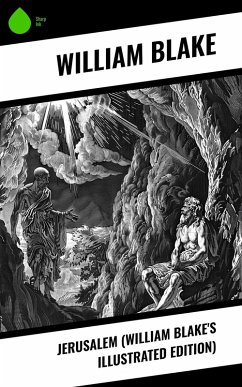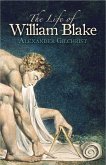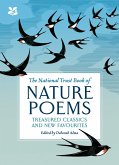William Blake's "Jerusalem" is a profound and visionary work that interweaves poetry and intricate illustrations, presenting a compelling critique of the Industrial Revolution and exploring themes of spirituality, innocence, and redemption. This illustrated edition showcases Blake's unique artistic style, characterized by vibrant colors and elaborate designs, which augment the poem's exploration of the dichotomy between the organic and the mechanistic. As a culmination of Blake's artistic and philosophical musings, "Jerusalem" stands as a foundational text within the Romantic literary movement, illuminating the tension between the spiritual quest for social justice and the harsh realities of materialism. Blake, a radical thinker and multifaceted artist, was deeply influenced by the socio-political upheaval of his time, as well as by his own spiritual beliefs and experiences. His prophetic vision enabled him to challenge the prevailing norms of society, utilizing his works as vehicles for deeper truths. Through a lifetime of poetic experimentation and visual artistry, Blake sought to awaken consciousness, guiding readers toward a higher understanding of themselves and their world. His exceptional fusion of art and literature in "Jerusalem" is a testament to this urgent quest for enlightenment. I wholeheartedly recommend "Jerusalem" to those seeking a transformative literary experience. Blake's illustrations, coupled with his rich and evocative language, offer not just an aesthetic experience but also an opportunity for profound contemplation on the human condition. Readers will find themselves drawn into Blake's mystical realm, where the imagination transcends the mundane, inviting personal introspection and awakening the spirit.
Dieser Download kann aus rechtlichen Gründen nur mit Rechnungsadresse in A, B, BG, CY, CZ, D, DK, EW, E, FIN, F, GR, HR, H, IRL, I, LT, L, LR, M, NL, PL, P, R, S, SLO, SK ausgeliefert werden.









